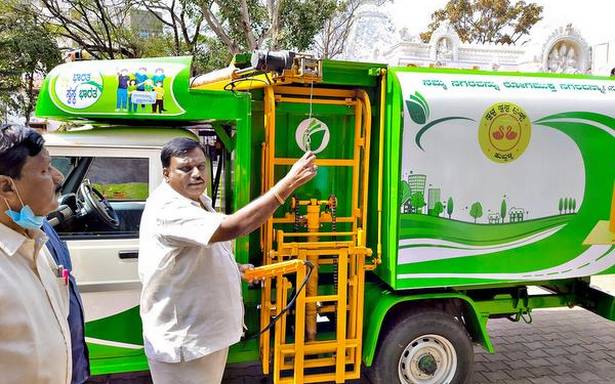Social activist comes up with Swachh Swast Wastebin Project in Hubballi
The Swachh Swast Trust of Hubballi led by social activist Vishwanath Patil has come up with an indigenously-developed Swachh Swast Wastebin Project aimed at facilitating efficient solid waste management, particularly wet waste.
Elaborating on the project, Mr. Patil, who is chairman of the trust, told presspersons here on Friday that the indigenously-developed garbage handling system is highly cost effective. “The garbage collecting area is completely hygienic and good looking. There will be no menace of dogs, pigs or mosquitoes as the garbage bin will remain closed,” he said.
On the maintenance of the new system, he said that one drive with one operator can lift the garbage at multiple points without much effort as the vehicle is automated and the garbage bin is shifted through a simple mechanism. There will also be no problem with regard to finding space for dust bins, as they will be placed underground and there will be no stench, he explained.
Mr. Patil said that he had been experimenting with the system for the last four years in his locality, Vishweshwar Nagar, and after trial and error, he has now converted a sports-utility vehicle into a fully automated auto tipper.
To a query, he said that the cost of setting up an underground dust bin will be around ₹ 32,000 and there can be one dust bin for 10 households. The automated auto tipper will cost around ₹ 12 lakh and it can cover several localities in a day, he said. Mr. Patil said that the whole idea of Swachh Swast Wastebin Project is to facilitate easy solid waste management through adapting innovation. “We have not done this project for business. We want organisations or local bodies to adopt this method to ensure easy and quick solid waste disposal, particularly for wet waste,” he said.
He said that the trust members Ramanamurthy K., Neela Vasant Biradar, Mahantesh Doddamani and others extended cooperation in executing the project.
Source: Read Full Article

